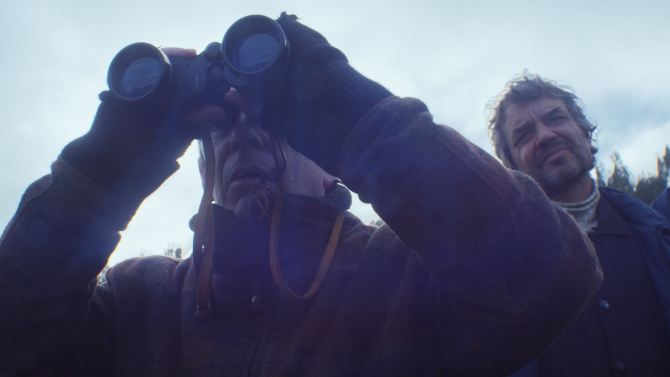Title: El Club
Director: Pablo Larraín
Starring: Roberto Farías, Antonia Zegers, Alfredo Castro, Alejandro Goic, Alejandro Sieveking, Jaime Vadell, Marcelo Alonso.
Pablo Larraín’s new feature is a psychologically complex response to the abuses of the Catholic Church, with a chamber drama, where four men and one woman embark on a spiritual journey of atonement.
The five members of the clergy reside in a house within the Chilean beach town of La Boca: Father Vidal (Larraín’s habitual sad-faced muse Alfredo Castro), Father Ortega (Alejandro Goic), former army chaplain Father Silva (Jaime Vadell), and senile Father Ramirez (Alejandro Sieveking), tended by retired nun, Sister Monica (Antonia Zegers, the real-life Mrs. Larraín). They conduct their lives in isolation, and generally keep their distance from the locals, though they devote themselves to training their pet greyhound to compete in a national racing circuit. When another disgraced priest, Father Lazcano (Jose Soza), arrives to the repentant “Club” his presence does not go unnoticed by a young local fisherman, Sandokan (Roberto Farias), who remembers the abuses he suffered as an altar boy at Lazcano’s hands. Sandokan shouts the exploitation he has undergone at the doorstep of the priests’ abode, so that all the village can hear. Suddenly a violent incident brings an end to that problem but initiates a new one by triggering the arrival of Father Garcia (Marcelo Alonso), a crisis counsellor, dispatched by the Church to check up on the club.
‘El Club’ was selected as the Chilean entry for Best Foreign Language Film and won the Jury Grand Prix at the 65th Berlin International Film Festival. The movie undoubtably displays a very profound critique towards the depraved and corrupt behaviour of some members of the religious order. It is harrowingly intense to observe how these penitents are nothing but holy. Even more distressing is how the victim of such behaviour is somehow affected by the Stockholm Syndrome: Sandokan is completely in awe of the priests who abused him. The grimy atmosphere Larraín creates emphasises the mental imprisonment and constricted physical space of the drama’s denouement.
Technical: C
Acting: B
Story: B-
Overall: B-
Written by: Chiara Spagnoli Gabardi

